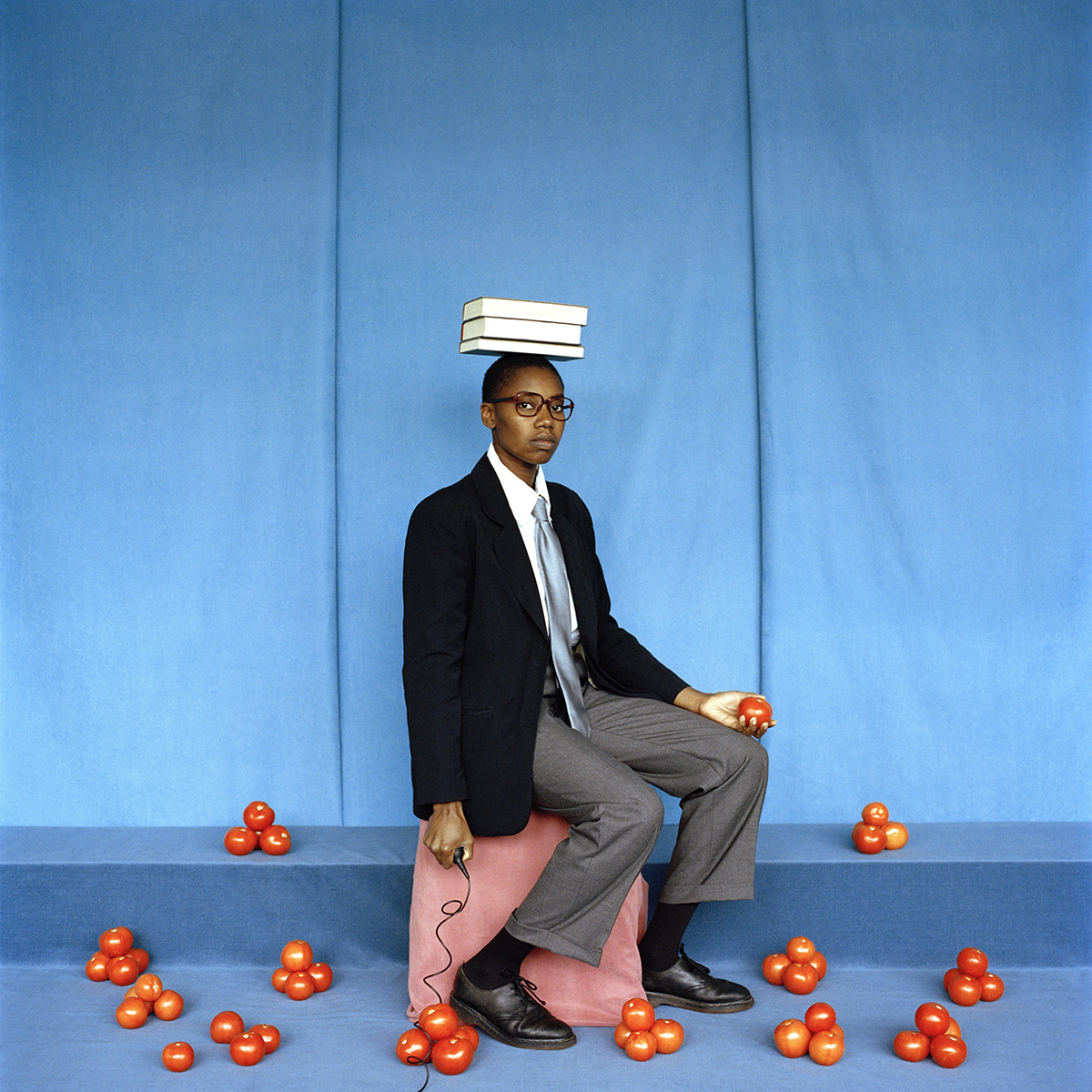A resource exploring the subject of family portraits and representations of family inspired by the work of Silvia Rosi.
Part of Jerwood/Photoworks Awards 3
Introduction
Silvia Rosi’s Encounter explores her personal family history drawing on her Togolaise heritage, and the idea of origins. She takes inspiration from the archives of West African portrait studios and her own family album to create a series of staged photographs.
Migration in Self-portraiture
The work is a fictional representation of Silvia’s family album, exploring tales of migration and diaspora through self-portraiture, performance and symbolism. Inspired by an image from her own family album, of her young mother as a market trader in Lomé Togo, Rosi retraced her parents’ journey of migration from Togo to Italy. This is a story which is both deeply personal and at the same time universal.
Reenacting traditions
With her mother as source and muse, Rosi performs her family narrative recreating both visual and oral histories through the combination of photography, text and video. She references the aesthetics of West African studio portraits through the use of backdrops and props. The act of head carrying, a skill traditionally passed on from mother to daughter, is central to the work, learnt and performed by Rosi in an attempt to regain a tradition that has been lost through migration and her position as a European.
Personal family history
Encounter is a homage to the family album, an object which is in constant transformation and recontextualization as time passes and relationships progress. The exhibited works include new examples of colour and black and white photography, as well as works where she explores working with video for the first time.
‘Through photography and the use of self-portrayal I explore the idea of origins, which is embedded in the figure of my mother. Engaging with her, and her presence within the family album, I explore my personal history and her own through my own presence within the photographic image. In my photographs I interpret my mother, I wear her clothes and mimic her gesture. In the photographic experience we become close.’
Silvia Rosi
Use of moving image
For Encounter, Silvia Rosi worked with video. In the work La Sconosciuta a video screen is positioned between two framed photographs. In the video Silvia Rosa appears to walk out of one frame into the other, pausing momentarily to adjust the bag she is carrying. This use of movement is unexpected and creates a captivating interaction between the images.
I. Creating a Family Portrait
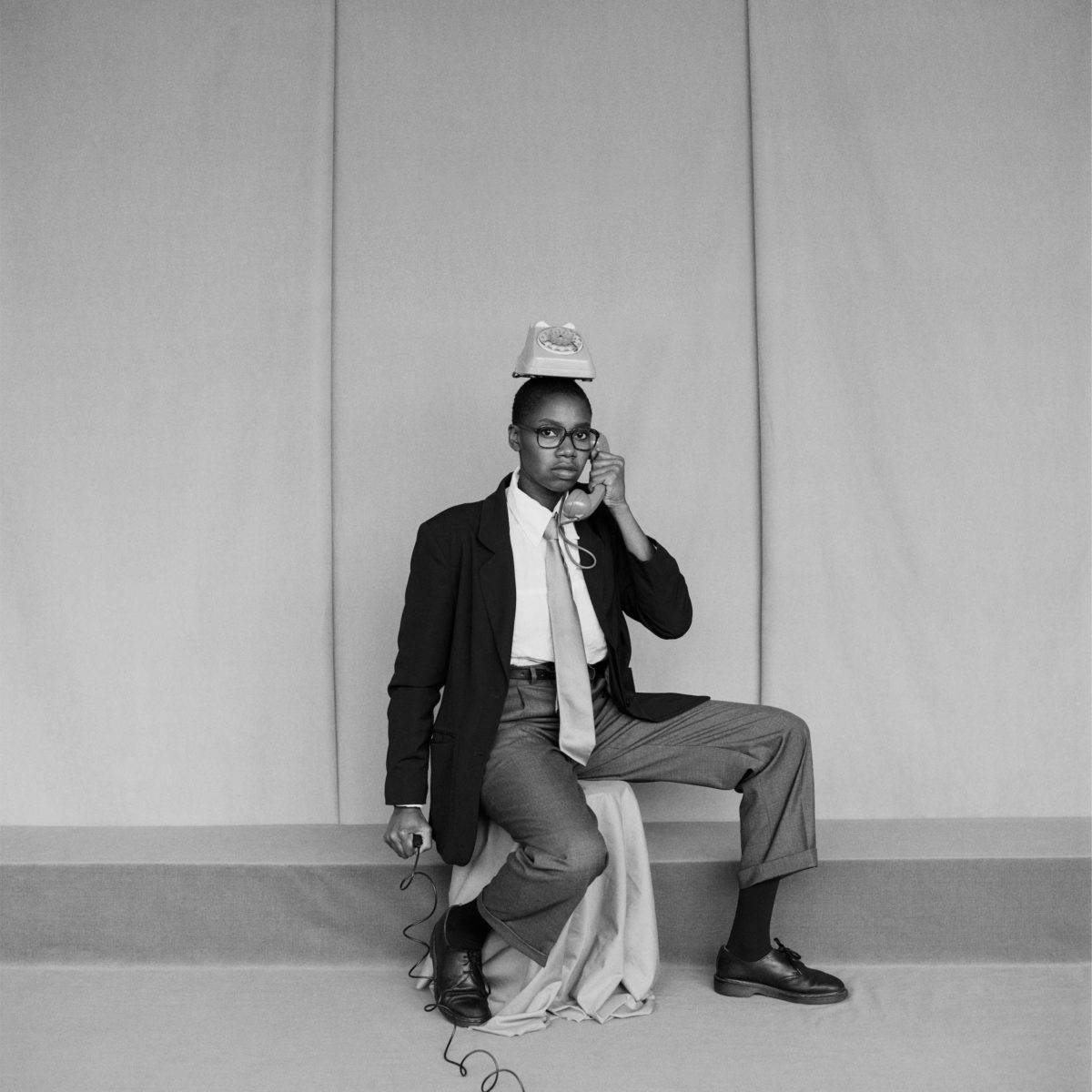
Discuss
Take some time to explore Rosi’s work, then respond:
Write down up to six words in response to the work (e.g. repetition, balance, discord). Ask students to work independently and write each word on a separate post-it or piece of paper.
What activities do you and your family members do together?
Recall an important family memory. Is there an existing photograph that is linked to this memory? Describe it.
What significant part of your family history has not been photographed? Describe a photograph that could have been taken to record this – consider the setting, pose, props (including what people are wearing).
List up to six objects that have significance to you and/or your family.
How do you usually share your family photographs?
Make
Taking the themes of family and family identity as a starting point, ask students to create their own family portrait. Employ a documentary photography approach – presenting a straightforward and accurate representation of people, places, objects and events.
Begin with these prompts:
What does family mean to you?
Who are the people that you consider to be part of your family?
Will you create a conventional or less ordinary portrayal of family?
Encourage students to decide who to include in the photographs and where they want to shoot. Will they ask people to pose or use a candid approach? Give thought to lighting, camera position, composition, focus and depth of field.
* Ensure students are aware that image consent is needed. If the subjects are under 18 the photographer must check with their parent or guardian.
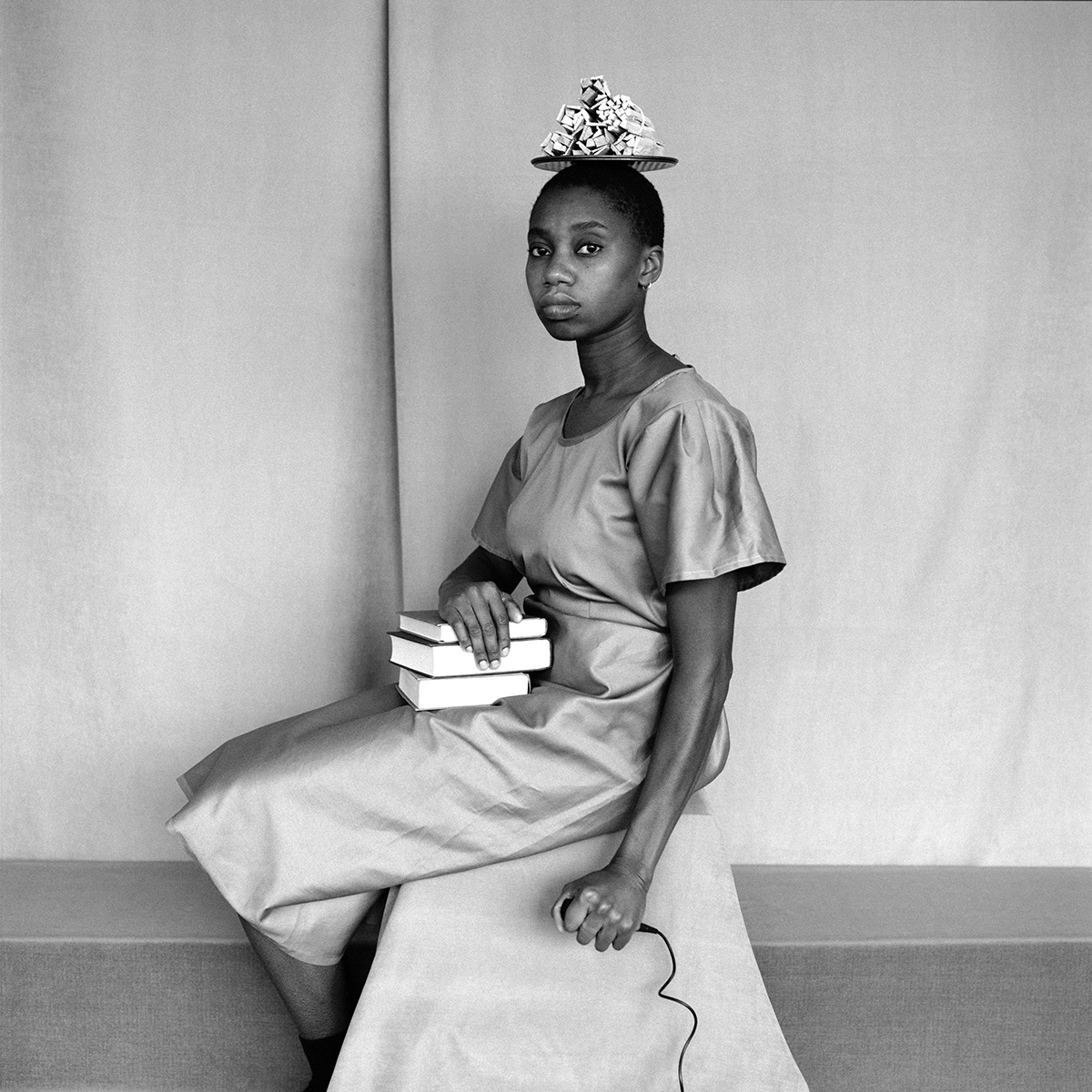
II. A Re-Staged Photography
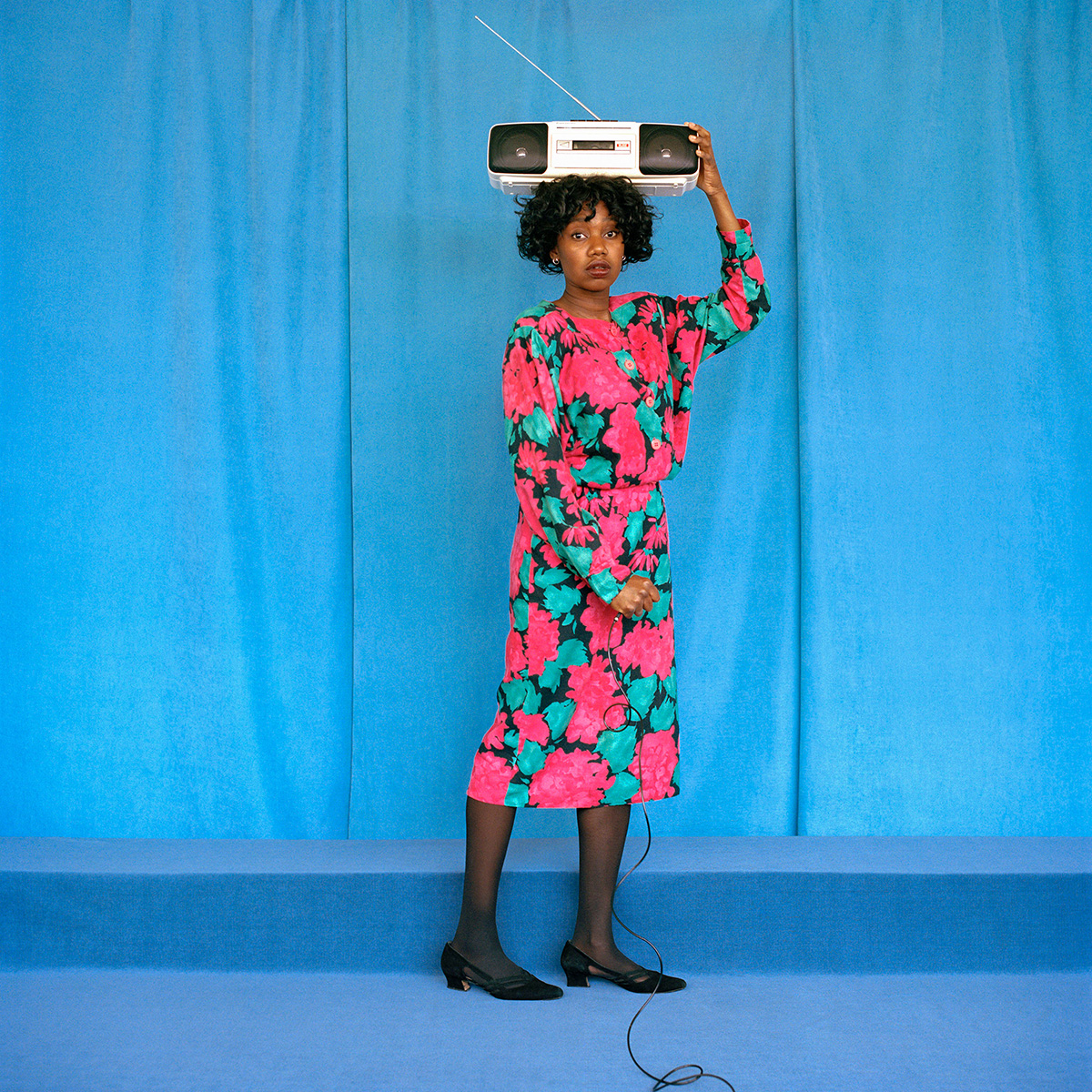
Discuss
A staged photograph is constructed rather than captured and gives the photographer control over every element of the image. This project invites students to re-enact or re-imagine an existing photograph inspired by Silvia Rosi.
Ask students to begin by analysing a re-staged photograph. Students might choose a Silvia Rosi image, or an alternative artist such as Heather Agyepong or Cindy Sherman. Make notes:
Describe the event, image or narrative that is being re-presented.
Is it true to the original, or incorporate a twist?
What photographic strategies or techniques has the artist employed – for example, props, backdrop, lighting, focus, framing?
What was the artist’s intention, and have they been successful?
Make
Set students the task of selecting an image they would like to recreate.
Students could select an image they like on our website, look to archives to source an image, or choose a famous image from national collections such as The National Gallery, or Rijksmuseum.
What is the intention? Will students faithfully re-enact an image or create their own interpretation?
Prepare backdrops, costumes, props, make-up and practise poses.
Set up and shoot! Remember to keep a copy of the original image close by for reference.
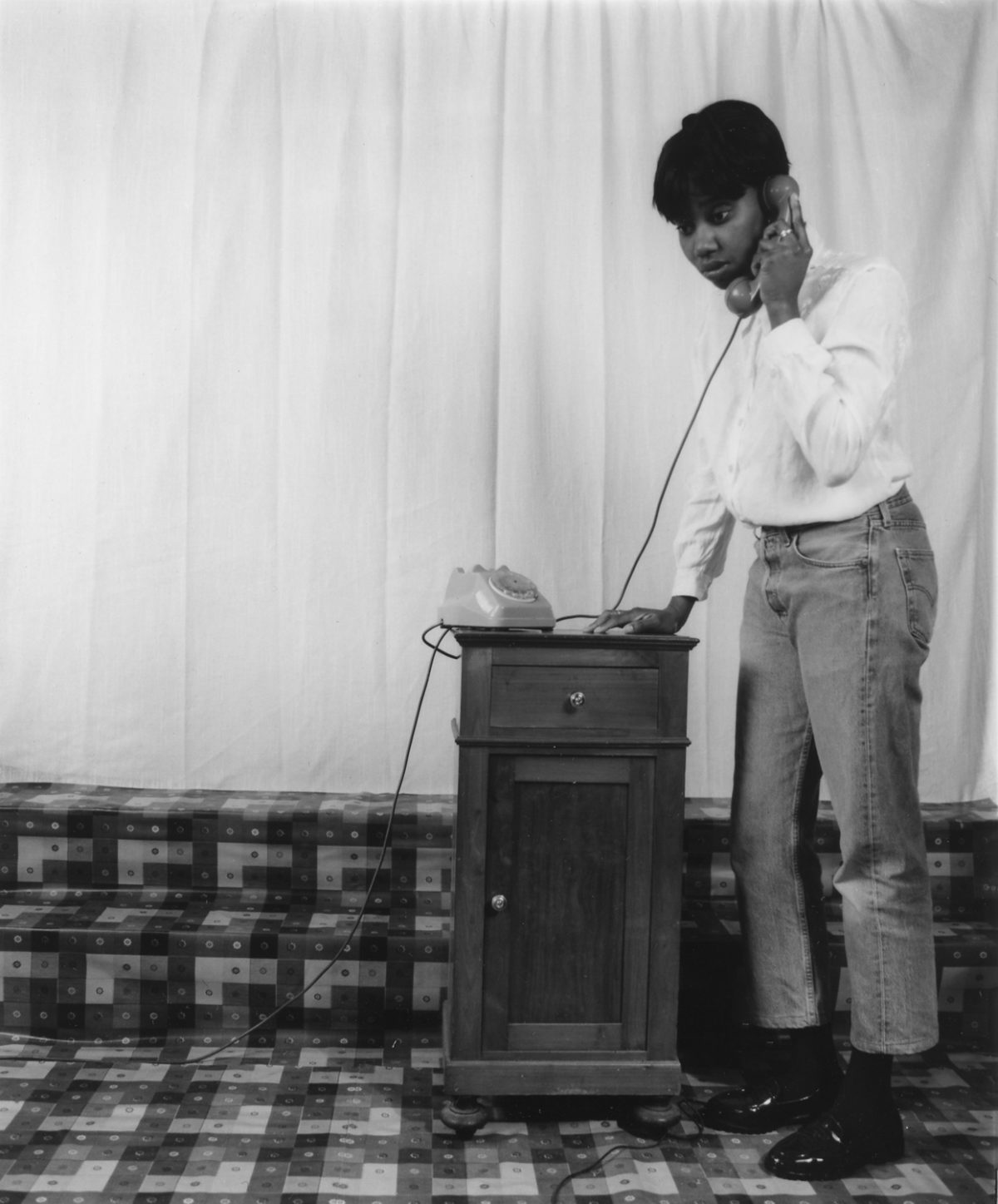
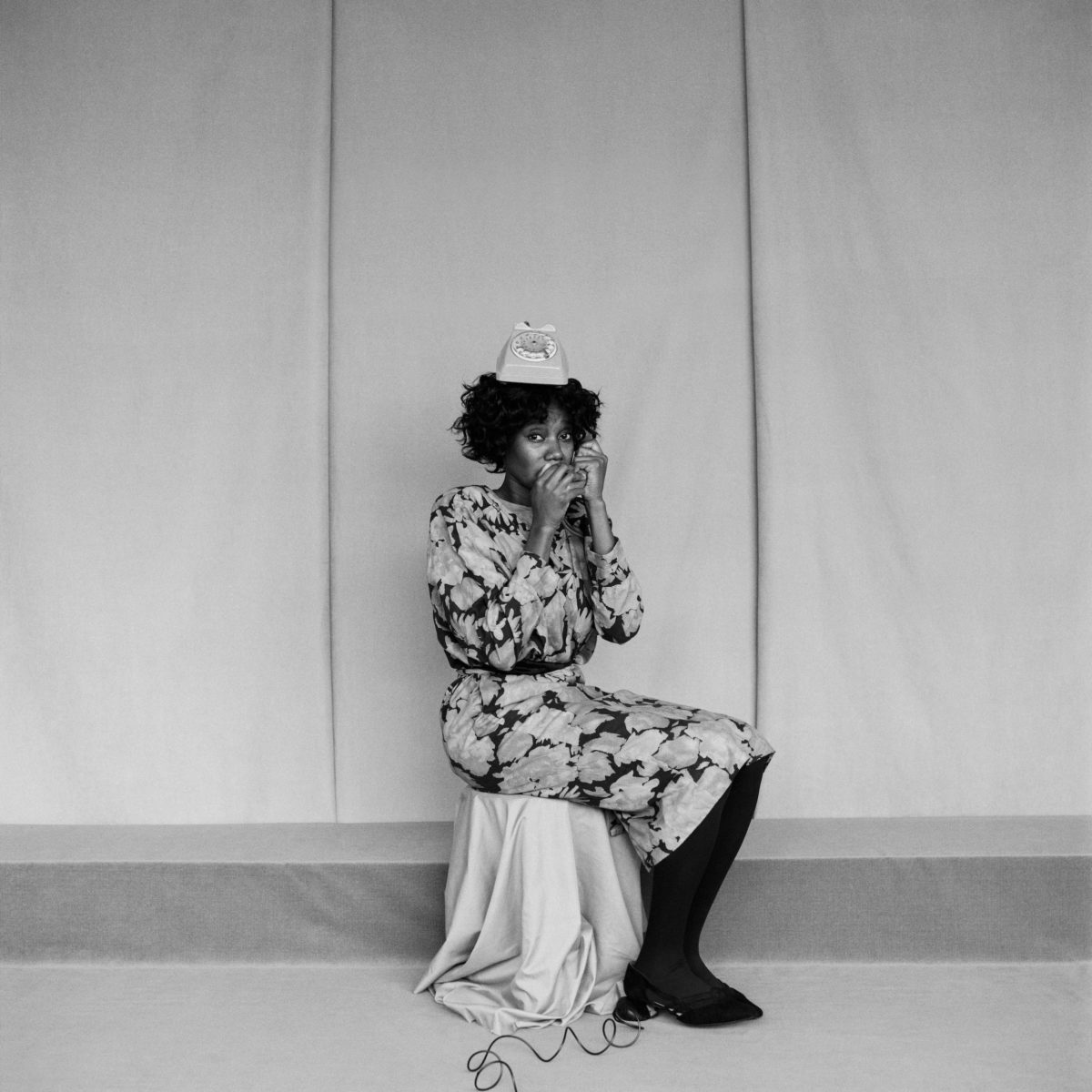
Other Artists
Larry Sultan, Pictures from Home, 1986
Latoya Ruby Fraizer, Notion of Family, 2001-14
Matthew Finn, Mother
John Clang, Being Together, 2010
Anna Fox, My Mother’s Cupboards and My Father’s Words
JJ. Waller, Informal Portraits Of This Time
Johhny Briggs, Close To Home
Trish Morrissey, Seven Years, 2001
Joanna Piotrowska, Frowst
Cindy Sherman History Portraits
Tom Hunter, Persons Unknown, 1997
About the Contributor
Lindsey Smith is a Photographic Artist and Freelance Artist Facilitator. Over the last 25 years she has worked in collaboration with a range of organisations to design, deliver and evaluate learning and engagement initiatives.
She has extensive experience of devising and facilitating public workshops and creative projects. Employing a broad range of materials and processes within a photography and lens-based practice enables me to engage with a diverse range of audiences and participants.
